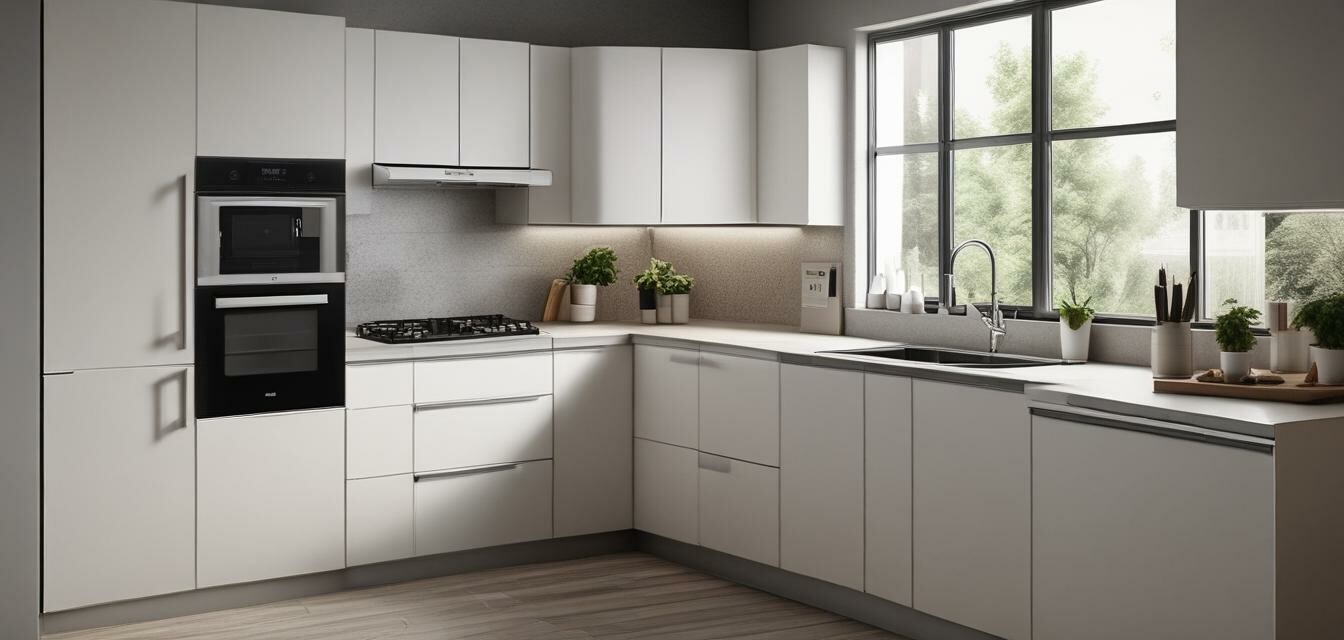
The rise of ultra-efficient appliances in 2024
- Ultra-efficient appliances are becoming a household necessity in 2024.
- Innovations focus on reducing energy consumption and minimizing the carbon footprint.
- Consumers can save significantly on utility bills by adopting these appliances.
- Staying informed about industry trends can lead to better purchasing decisions.
The landscape of household appliances is rapidly changing. With the growing emphasis on sustainability and energy efficiency, 2024 marks a significant turning point as ultra-efficient appliances rise in popularity. This article delves into the advancements in technology that are shaping these appliances, how they benefit modern families, and the trends that are defining the future of energy consumption.
What Are Ultra-Efficient Appliances?
Ultra-efficient appliances are those designed to consume minimal energy while delivering maximum performance. Unlike traditional appliances, which can be power-hungry and waste energy, ultra-efficient models leverage cutting-edge technology to achieve efficiency without compromising functionality.
Key Features of Ultra-Efficient Appliances
| Feature | Description |
|---|---|
| Smart Technology | Integration with smart home systems to optimize energy usage based on real-time data. |
| Energy Star Certification | Meets strict energy efficiency guidelines set by the U.S. Environmental Protection Agency. |
| Advanced Materials | Utilizes lightweight and durable materials that help reduce energy consumption in manufacturing and usage. |
| Optimized Performance | Engineered for maximum output with minimal input, resulting in lower energy bills. |
| Eco-Friendly Waste Management | Incorporates methods for reducing waste and reusing materials, complimenting their energy efficiency. |
Why the Shift to Ultra-Efficient Appliances?
There are multiple factors driving consumers toward ultra-efficient appliances:
- Economic Benefits: Reduced energy bills are a significant incentive. As utility rates fluctuate, investing in energy-efficient appliances can yield substantial savings over time.
- Environmental Awareness: More households are becoming socially responsible, aiming to lower their carbon footprint. Ultra-efficient appliances contribute to this goal.
- Government Incentives: Many federal and state programs provide tax rebates or credits for purchasing energy-efficient appliances, encouraging further adoption.
- Technological Advancements: Continuous improvements in technology have resulted in appliances that perform better and consume less energy.
Popular Types of Ultra-Efficient Appliances
As families seek to transition to a more efficient household, various appliance categories have emerged as favorites:
- Refrigerators
- Washing machines
- Dishwashers
- Air conditioners
- Microwave ovens
For a more in-depth look into specific appliances, check our pages on refrigerators, washing machines, and dishwashers that highlight their features and benefits.
Trends Influencing Ultra-Efficient Appliances in 2024
As 2024 unfolds, several trends appear to be shaping the future of household energy consumption:
- Increased Demand for Smart Appliances: Consumers are looking for products that not only save energy but also offer convenience through smart features.
- Focus on Sustainability: Energy-efficient appliances are increasingly being designed with sustainable practices in mind.
- Integration of Renewable Energy: As more households adopt solar panels, ultra-efficient appliances are becoming essential for maximizing energy savings.
- Consumer Education: Greater awareness surrounding the benefits of using ultra-efficient appliances is leading to more informed purchasing decisions.
The Impact of Energy Efficiency on Household Savings
Investing in ultra-efficient appliances can significantly affect household budgets:
| Appliance Type | Annual Energy Consumption (kWh) | Average Savings per Year ($) |
|---|---|---|
| Conventional Refrigerator | 800 | $100 |
| Ultra-Efficient Refrigerator | 400 | $200 |
| Conventional Washing Machine | 600 | $80 |
| Ultra-Efficient Washing Machine | 300 | $160 |
By upgrading to ultra-efficient appliances, families can not only contribute to environmental conservation but also enjoy substantial annual savings.
Conclusion
The rise of ultra-efficient appliances in 2024 represents a vital shift in how households approach energy consumption. By embracing these innovations, families can significantly reduce their energy bills while also playing their part in protecting the environment. To stay updated on the latest trends and technologies in energy-efficient appliances, be sure to check our news and trends.
Tips for Choosing Ultra-Efficient Appliances
- Always look for Energy Star certification.
- Consider the size of the appliance relative to your needs to avoid overspending on energy.
- Research brands and read reviews to find models that meet efficiency standards.
- Take advantage of available rebates on energy-efficient purchases.
- Check compatibility with smart home technology for better energy management.
Pros
- Lower energy consumption resulting in reduced bills.
- Smart features that enhance daily convenience.
- Contributes to a sustainable lifestyle.
- Government incentives make them a financially smart choice.
Cons
- Higher upfront costs compared to conventional appliances.
- Availability may be limited in certain areas.
- Some models may require smart home setups.
